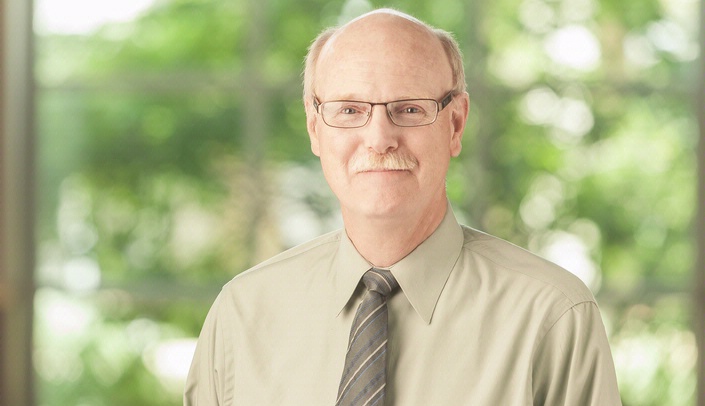A recent national study by the American Academy of Family Physicians (AAFP) found that UNMC ranked eighth nationally in the percentage of medical school graduates who were family medicine residents.
According to the study, 16.1 percent of UNMC’s med school graduates were family medicine residents in 2015.
In a message to College of Medicine Dean Brad Britigan, M.D., Clif Knight, M.D., senior vice president for education of the AAFP, congratulated UNMC on the “outstanding performance” of the medical school “in graduating a significantly higher than average percentage of students choosing the specialty of family medicine for their residency training.
“This is more important now than ever as the primary care shortage continues to worsen in our United States,” Dr. Knight said in the message.
This isn’t news at UNMC.
“The average age of the population in the U.S. continues to go up as baby boomers age,” Dr. Britigan said. “They are in turn living longer and doing so with a growing number of chronic medical conditions. Multiple analyses have demonstrated that care of these individuals is best, both from the standpoint of outcomes and cost, when provided by a primary care provider, such as a family medicine physician.”
Dr. Britigan noted that the breadth of clinical skills possessed by a family physician, trained to provide primary care for individuals of all ages, is ideally suited to meet the health care needs of individuals living in relatively sparsely populated or other medically underserved areas of the country — which describes many of the rural counties of Nebraska.
“The demand for family medicine physicians and other providers of primary care services is not keeping up with the increasing demand as many medical school graduates pursue careers in other medical specialties and subspecialties,” he said. “Encouraging as many of our students to pursue careers in family medicine and other primary care disciplines is critical to improving the health care of Nebraska.”
Michael Sitorius, M.D., chair of the UNMC Department of Family Medicine, called it an honor to receive recognition as one of the top producers of family physicians in the country.
“This outcome is consistent with our mission to recruit and train a workforce that meets the health care needs of the state,” Dr. Sitorius said. “We have achieved this success due to a holistic admissions process, early and consistent exposure to outstanding faculty both full time and volunteer as well as the opportunity to work with and gain exposure to premier residency training programs in family medicine.”
